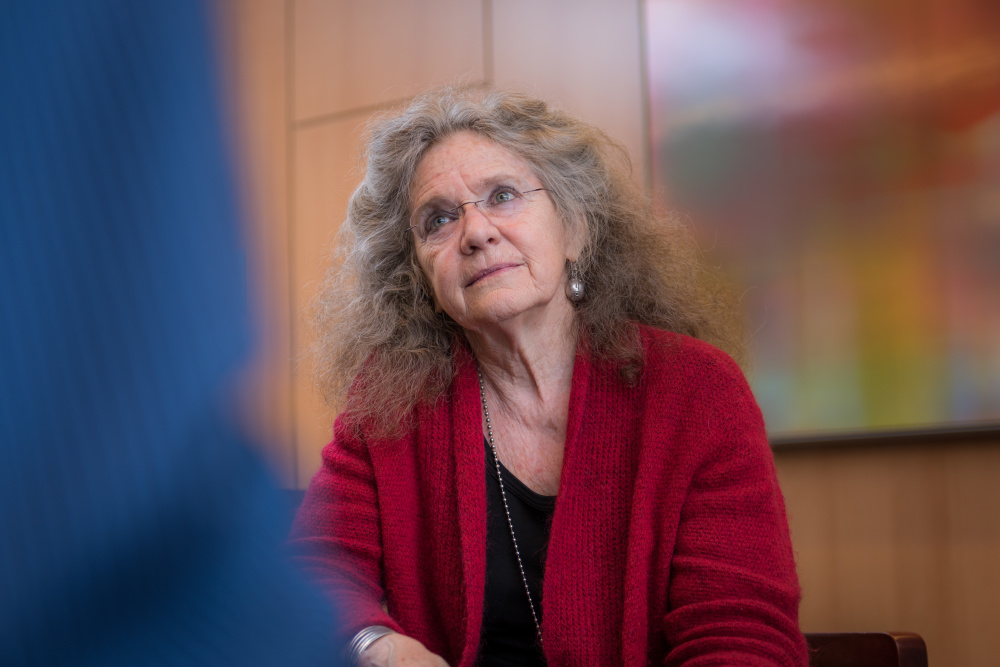Deb Petrishen says well-meaning but frustrating interactions can occur everywhere, from the grocery store to family functions. Although friends and loved ones are often sensitive and supportive, some may not know what to say to someone with stage III ovarian cancer, especially after two recurrences. Petrishen has just as much difficulty explaining her feelings.
Except one place.
Petrishen, 59, treated in part at the Susan F. Smith Center for Women’s Cancers, is among about a dozen gynecological cancer patients who meet monthly at Dana-Farber to discuss issues related to their diseases. Because advanced ovarian, cervical, and other gynecological cancers typically have higher mortality rates and are more private in nature than other malignancies, women dealing with them share concerns and challenges that other people – even other cancer patients – often can’t understand.
“This is a safe place that helped me feel like I was not alone after my diagnosis and surgery,” says Petrishen of Dana-Farber’s Gynecologic Cancer Support Group, which meets on the first Monday of each month at the Institute’s Boston campus. “You can say almost anything because people know what you’re talking about.”
In the support group, patients feel comfortable sharing fears over whether their cancer will return or continue growing, and the effects it has – or could have in the future – on their lives and families. Jokesters like Petrishen inject at least some humor into each meeting, and social worker Bebe Nixon, MSW, LICSW, centers the sessions around specific topics.

“One month we talked about loss; another we talked about what not to say to cancer patients,” says Nixon. “We shared examples of inappropriate comments from people who were trying to be supportive and sensitive, and discussed how group members can support each other around these incidents.”
The group, held at Dana-Farber for more than a decade, is open in nature; people can come for one visit or every month, and don’t need to be in active treatment. Patients receiving care at other cancer centers are welcome, but loved ones are not; what is said in group stays in group. There is no criticism, cross-talk, or interrupting.
Learn More:
“Regulars” like Petrishen come to every session, while others are less frequent – but no less enthusiastic – attendees. Anne Tonachel, another stage III ovarian cancer patient, was diagnosed nearly a decade before Petrishen, and says the encouragement she has received from the group has been “invaluable and sustaining” through the years.
“For me, and I know for some others, seeing fellow women with gynecologic cancers continue to be a vital, happy, active part of their families’ and friends’ lives has been the greatest gift,” says Tonachel. “These diseases strike at the very core of how we see ourselves as women, and bring up issues that would be difficult for us to discuss with someone who had not experienced similar concerns.”
Tonachel says that knowing these “strong, loving women” has given her the courage and strength to handle the rocky roads of ovarian cancer, while Petrishen realizes how “desperately hungry” she was for such a group before she was strong enough post-surgery to join.
“It’s been such a positive experience,” she says. “I can’t imagine not having it.”
The Gynecologic Cancer Support Group meets the third Monday of each month, from 5 to 6:30 p.m. For more information about attending, please contact Bebe Nixon, MSW, LICSW: Bebe_Nixon@dfci.harvard.edu. View the Dana-Farber calendar for more support programs.
